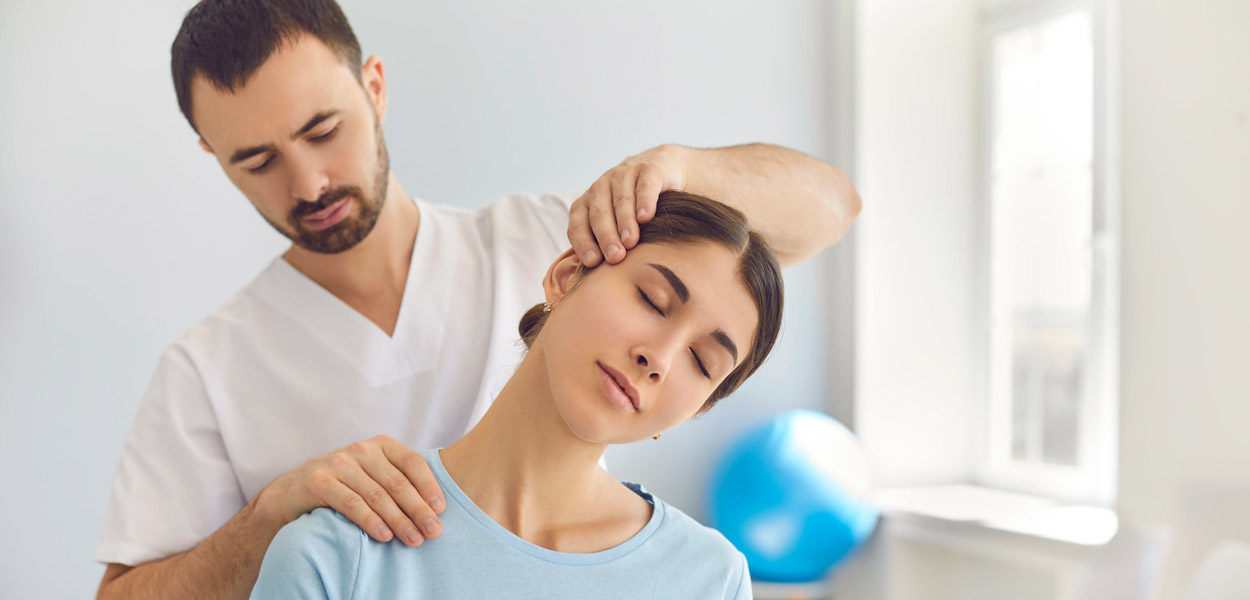section-1414e32

section-018cc4c
Posture assessment involves assessing the positions of the body’s joints. Characteristics of proper posture include balanced muscles, a neutral pelvis, earlobes located directly above the shoulders, the anterior superior iliac spine located directly above the pubic tubercle, and the spine with a natural curvature in the least stressful posture.
Types of Abnormal Postures
Patients with any of the following abnormal postures may need physical therapy to restore proper posture.
1. Lordosis
Patients with this posture have an excessive inward curve of the spine. This condition mainly affects the lumbar spine, but may also occur in the neck.
2. Kyphosis
An excessive outward curve of the spine, called kyphosis, may cause a hunchback or humpback deformity. This condition is common in the chest area/low back, but may also occur in the neck.
3. Scoliosis
This condition is characterized by an abnormal curving of the spine to the left or right side. Scoliosis typically affects the thoracic spine in children, but may also be found in adults.
4. Military Posture
The torso in patients with military posture is pushed up and forward. The pelvis has an anterior tilt and the knees are hyperextended. Military posture can lead to tight/strong muscles in the low back and hip flexors, and weak/elongated muscles in the abdominals.
5. Flat Back Posture
This type of abnormal posture is characterized by a forward tilt of the head, posterior tilt of the pelvis, and little or no curvature in the spine. Patients have a flat back posture and a turned in pelvis. Flat back posture typically causes short/tight muscles in the abdominals, hamstrings, and neck flexors. Patients will have weak/elongated muscles in the hip flexors, back extensors, quadriceps, lumbar erector spinae, and gluteal muscles.
6. Sway Back Posture
The hips of patients with sway back posture are thrust forward, the head is also tilted forward, and the pelvis is tilted forward — more so than flat back posture. Patients tend to have short/tight muscles in the hamstrings, internal obliques, and low back. They will typically have weak/elongated muscles in the hip flexors, external obliques, upper back extensors, and neck flexors.
section-24f3387


section-c8617d2
What to Expect During a Posture Assessment
A physical therapist will begin by asking the patient to discuss any symptoms they’ve experienced in the past and any symptoms they are currently experiencing.
The physical therapist will then observe the patient standing, from three different angles: front, back, and side. He or she will take note of any abnormalities in pelvic tilt, muscle development in the upper and lower back, the position of the shoulders, knees, and ankles. Depending on the patient’s condition, the physical therapist will create a personalized program designed to correct abnormalities and minimize pain.
Tips to Maintain Proper Posture
Patients can help prevent bad posture by taking the following steps:
- Use a lumbar roll to maintain a forward curve in the lower back.
- Use kinesiology tape to facilitate muscle contractions and prevent muscle spasms and pain.
- Perform scapular stabilization exercises.
- Set an alarm or timer to remind you to correct posture.
